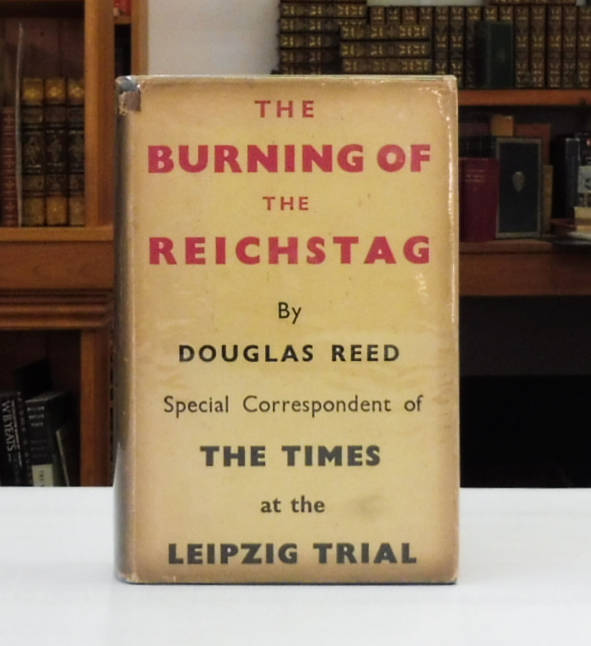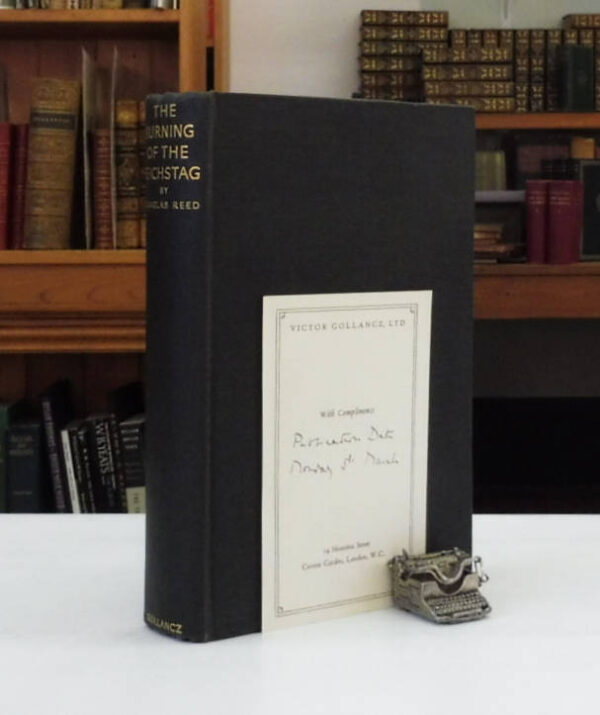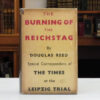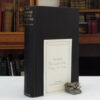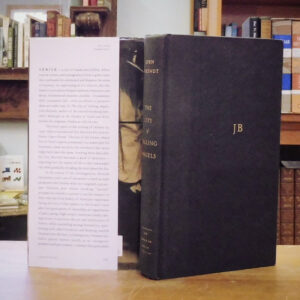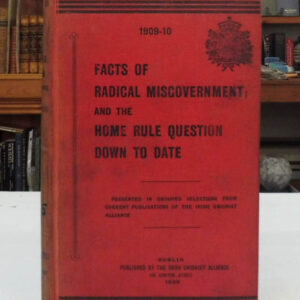The Burning of The Reichstag, Reed, Douglas, Special Correspondent of The Times at the Leipzig Trial. Published by Victor Gollancz, London, 1934. First Edition, Publishers Note Laid-In. 8vo up to 9½” tall., 352pp. with four black and white plates. Black cloth boards, gilt spine titles. Text block is clean without markings, tears or folds; a very light toning to edges. Boards are clean and binding is strong. Un clipped dust jacket has darkened along spine and edges. Minor chipping to head and foot. Protected in mylar. An exceedingly rare copy in original wrapper.
The Reichstag fire February 27, 1933 was a critical event in the expansion of Nazi power. Hitler seized upon the building’s fire as evidence of communist scheming and the following day, a state of emergency was declared and orders were given for all KPD (The Communist Party of Germany) members of the Reichstag to be arrested. The Reichstag Fire Decree imposed restrictions on the press, banned political meetings and marches, and intercepted communications. The legal concept of habeas corpus was suspended, allowing the regime to detain suspected terrorists or revolutionaries without charge. This emergency decree was followed in March by the Enabling Act, giving the Nazis dictatorial control for a five-year period.
While the Reichstag fire was undoubtedly arson, who was responsible remains one of history’s great mysteries. Arrested at the rear of the building was Marinus van der Lubbe, a 23-year-old Dutch communist who claimed sole and full responsibility denying the existence of co-conspirators. Also arrested were Ernst Torgler, the chairman of the KPD, three Bulgarians, Georgi Dimitrov, Blagoi Popov and Vassili Tanev. At their trial, December 23, 1933, Judge Wilhelm Bürger found Marinus van der Lubbe was guilty of “arson and with attempting to overthrow the government”. The Judge further concluded that the German Communist Party had indeed planned the fire in order to start a revolution, but the evidence against the other defendants was insufficient to justify a conviction. Marinus van der Lubbe was executed January 10, 1934. Nearly 75 years after the event, the German government granted him a posthumous pardon.

